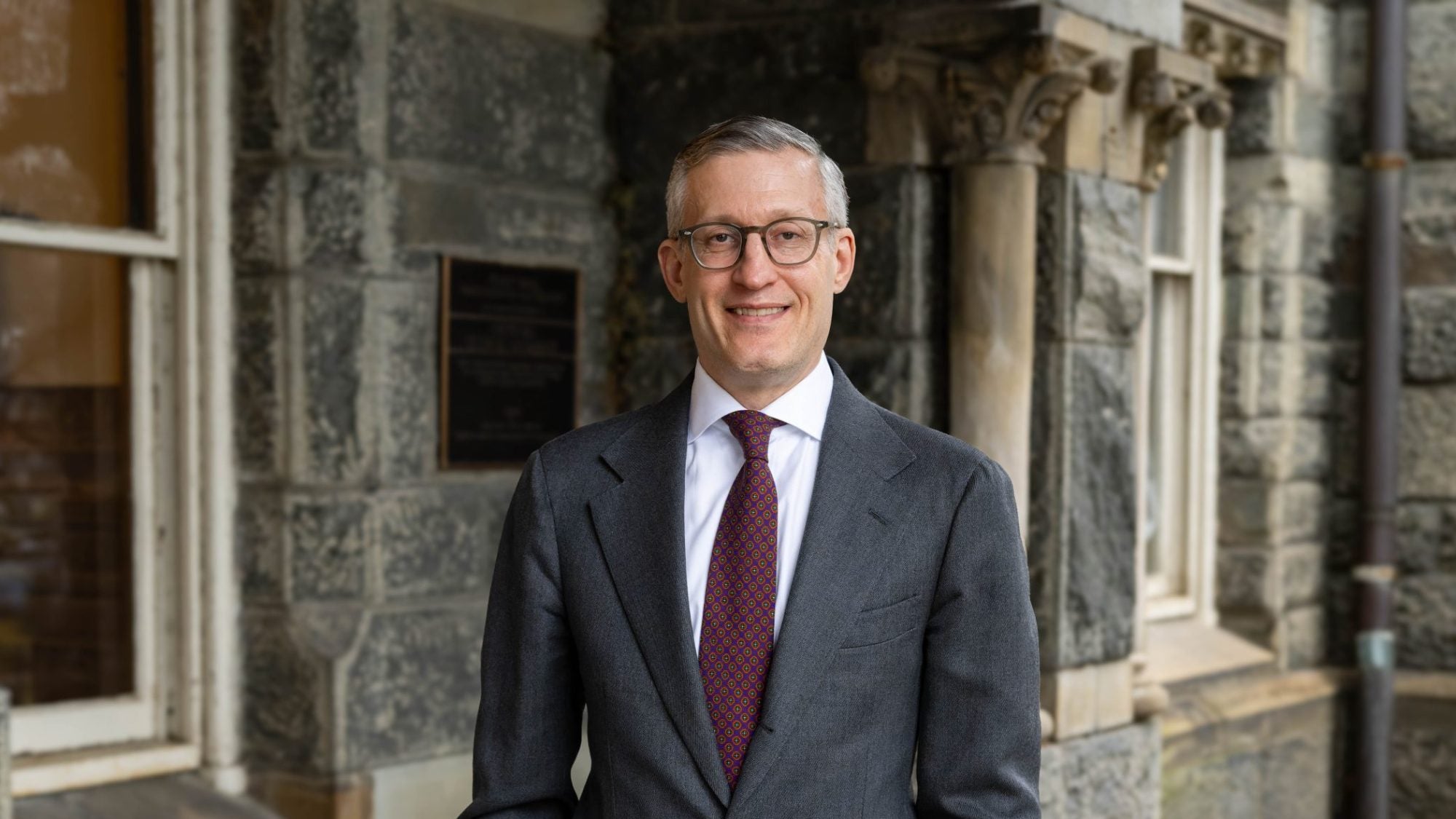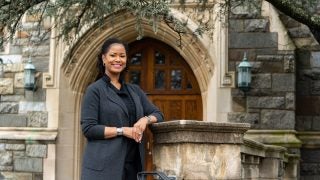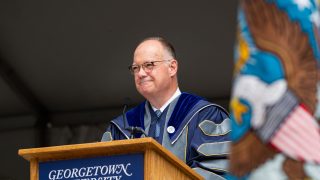David Edelstein, vice provost for education and a veteran professor who’s taught at Georgetown for over 20 years, has been named the new dean of the College of Arts & Sciences.
He will begin his new position on July 1, 2025.
Edelstein is tasked with leading Georgetown’s oldest school with more than 3,500 undergraduate students and over 500 faculty members. The College also houses numerous graduate programs and students.
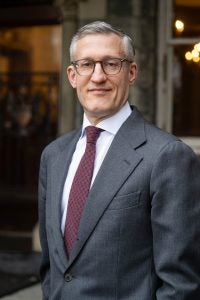
“We are pleased to welcome David into this new role and look forward to the leadership he will provide Georgetown College in its third century,” said Georgetown Interim President Robert M. Groves. “His experience and leadership at Georgetown will be invaluable as we continue to grow the exceptional education and research by the College on the Hilltop and the Capitol Campus.”
Edelstein has served in multiple administrative roles at Georgetown, most recently as the vice provost for education. In this role, he leads in the oversight and transformation of existing academic programs including the undergraduate core curriculum, as well as the development of new and emerging programs, such as the academic offerings at the Capitol Campus. In addition, he has played a leadership role in other projects such as the Georgetown Dialogues Initiative, which provides students exposure to and experiences in respectful dialogue between people with different viewpoints.
He also served as the vice dean for faculty affairs in the College of Arts & Sciences and has been a member of Georgetown’s faculty since 2002, with appointments in the School of Foreign Service and the College of Arts & Sciences.
As a researcher, Edelstein studies great power politics, military intervention and the causes of war and peace. He is the author of two books: Over the Horizon: Time, Uncertainty, and the Rise of Great Powers and Occupational Hazards: Success and Failure in Military Occupation.
Edelstein is eager to bring his over two decades of experience at Georgetown to lead the College. Over his tenure, he said he’s come to a deep appreciation of Georgetown’s Jesuit tradition, especially its emphasis on decision-making through discernment, which he plans to carry with him in his leadership of the College of Arts & Sciences.
“The liberal arts, what we do in the College, this is the heart and soul of Georgetown,” Edelstein said. “I am eager to get to work with our entire community — faculty, students, and staff — to build a College of Arts & Sciences that only further realizes its enormous potential. I take seriously the responsibility of this position: to safeguard the institution while also seizing upon new and exciting opportunities.”
Get to know Edelstein, his passion for Georgetown and where he wants to take the College of Arts & Sciences as dean.
Meet David Edelstein
How did you first get interested in international relations?
When I was about eight years old, my mom went back to work as a school teacher and had to leave the house early. My older sister left the house before I did to go to school, and my dad was already off to work as well. Those were the days when you could walk to elementary school on your own, so nobody worried about leaving me at home alone to make my way to school at the right time.
I didn’t like being in a quiet house, so I would turn on “Good Morning America” and watch the news. When everybody would get home at the end of the day, we’d sit down for dinner and make small talk, and then out of nowhere — and to my parents’ surprise — I would blurt out something like, ‘What do you think about the prospects for peace in the Middle East?’
I say it somewhat tongue in cheek, but I think my interest in international politics goes back to a pretty young age.
What made you want to pursue academia and a career in higher education?
I was fortunate enough to go to a small liberal arts school, Colgate University, for my own undergraduate education. I had wonderful mentors who quickly latched on to me as somebody who had an aptitude both for academic study and international relations.
They ever not-so-subtly pushed me in the direction of ‘Don’t go to law school. You’re really good at this.’ At some point, it dawned on me that I could make a career out of reading books and writing about things I’m interested in. Not only that, but I could go to graduate school, and somebody would pay for that graduate school, and eventually I could be a professor. I was like, ‘Sign me up.’
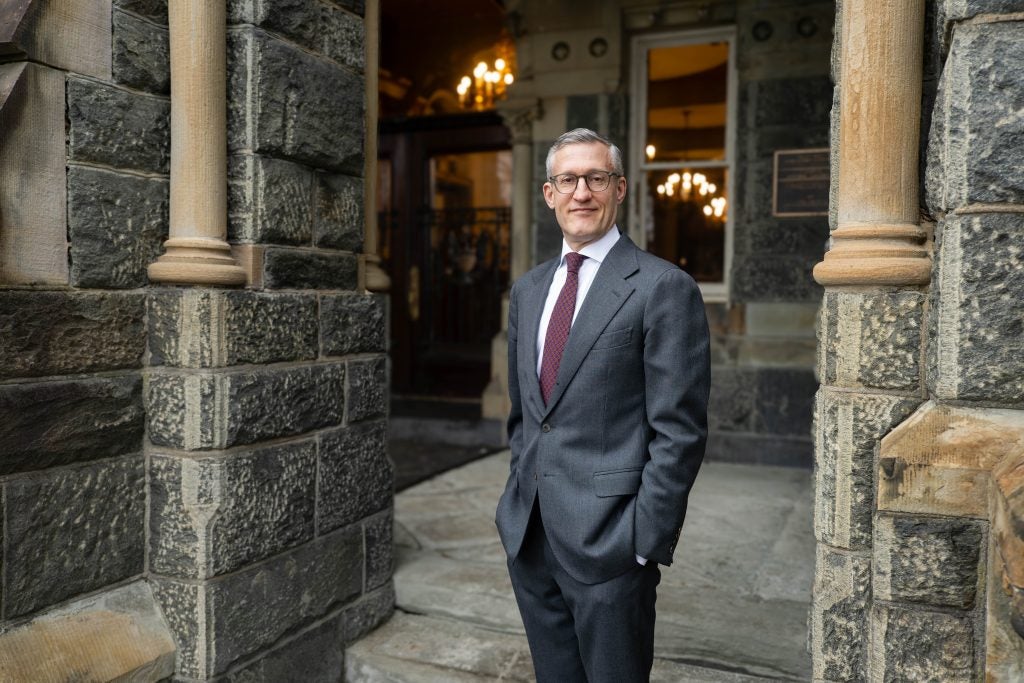
What do you focus your research on?
I have always been drawn to issues of war and peace. Questions about war and peace are important not just because of their strategic dimension, but also because they have consequences for real people and people’s lives.
My interests evolved from there to a particular passion for great power politics, which is understanding the relations between the most powerful actors in international politics. My most recent work is thinking about the emergence of China as a great power and its implications for international politics.
Why did you want to join the faculty at Georgetown as a young academic?
For somebody who’s interested in the issues I’m interested in, there’s literally nowhere better in the world to be than Georgetown. It is obviously the epicenter of U.S. foreign policy but also global international politics.
I was hired into, despite the job I’m about to take, the SFS and the Security Studies Program, which at that point was emerging as and has since cemented its place as the single best security studies program in the world. The prospect of joining that faculty of amazing people at Georgetown who are interested in issues similar to the ones I’m interested in was just a terrific opportunity.
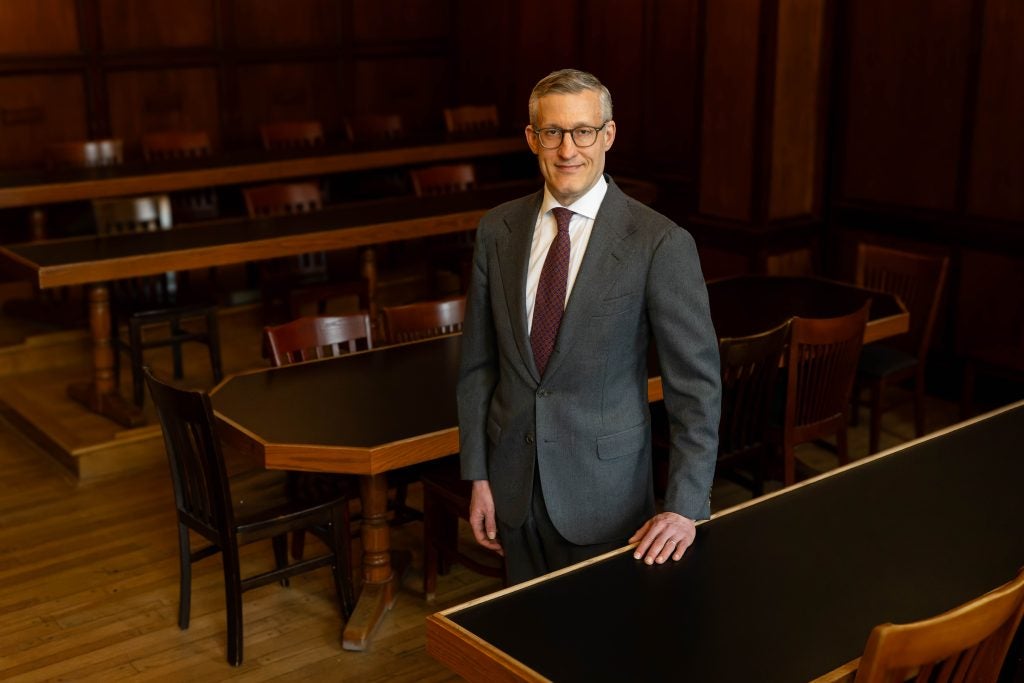
What’s kept you at Georgetown after 23 years?
The original motive still remains. It’s still a great place to study the things I’m passionate about with wonderful faculty and staff colleagues and students who I’ve had the privilege of teaching over the years.
As I’ve settled in here and as my career has developed, I’ve taken on more administrative roles and become more invested in the institution and its growth and development. Playing a role in the future of this institution and where it’s headed and how to best support it as it moves forward has been deeply fulfilling.
What are you most proud of in your time at Georgetown?
If you compare what our faculty looked like and the composition of our faculty when I started here in 2002 compared to the faculty today, I think it is a more diverse faculty. It is a faculty that’s consistently of a higher quality of world-class scholars and world-class teachers who are delivering a terrific education to our students while also producing the highest level of research.
A thread through my career has been working consistently to try and achieve those goals for our faculty, and I’m pretty proud of where we’ve gotten with that.
What drew you to serve as the dean of the College of Arts & Sciences?
The opportunity to stay at an institution I consider home and to continue to build that institution, to explore new opportunities for growth, and to develop a robust College identity, these were all things that got me terrifically excited about the opportunity.
